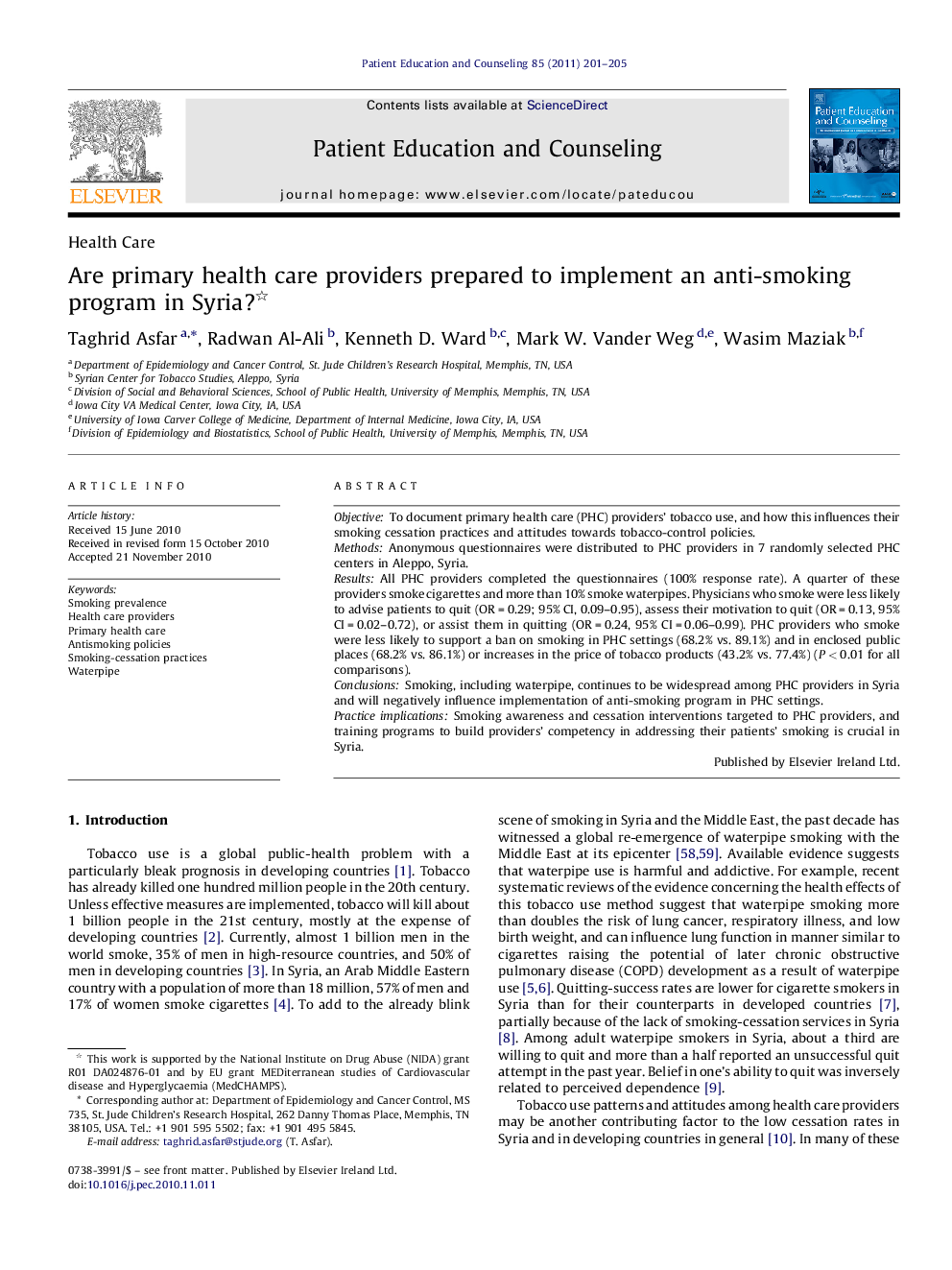| Article ID | Journal | Published Year | Pages | File Type |
|---|---|---|---|---|
| 6153450 | Patient Education and Counseling | 2011 | 5 Pages |
ObjectiveTo document primary health care (PHC) providers' tobacco use, and how this influences their smoking cessation practices and attitudes towards tobacco-control policies.MethodsAnonymous questionnaires were distributed to PHC providers in 7 randomly selected PHC centers in Aleppo, Syria.ResultsAll PHC providers completed the questionnaires (100% response rate). A quarter of these providers smoke cigarettes and more than 10% smoke waterpipes. Physicians who smoke were less likely to advise patients to quit (ORÂ =Â 0.29; 95% CI, 0.09-0.95), assess their motivation to quit (ORÂ =Â 0.13, 95% CIÂ =Â 0.02-0.72), or assist them in quitting (ORÂ =Â 0.24, 95% CIÂ =Â 0.06-0.99). PHC providers who smoke were less likely to support a ban on smoking in PHC settings (68.2% vs. 89.1%) and in enclosed public places (68.2% vs. 86.1%) or increases in the price of tobacco products (43.2% vs. 77.4%) (PÂ <Â 0.01 for all comparisons).ConclusionsSmoking, including waterpipe, continues to be widespread among PHC providers in Syria and will negatively influence implementation of anti-smoking program in PHC settings.Practice implicationsSmoking awareness and cessation interventions targeted to PHC providers, and training programs to build providers' competency in addressing their patients' smoking is crucial in Syria.
